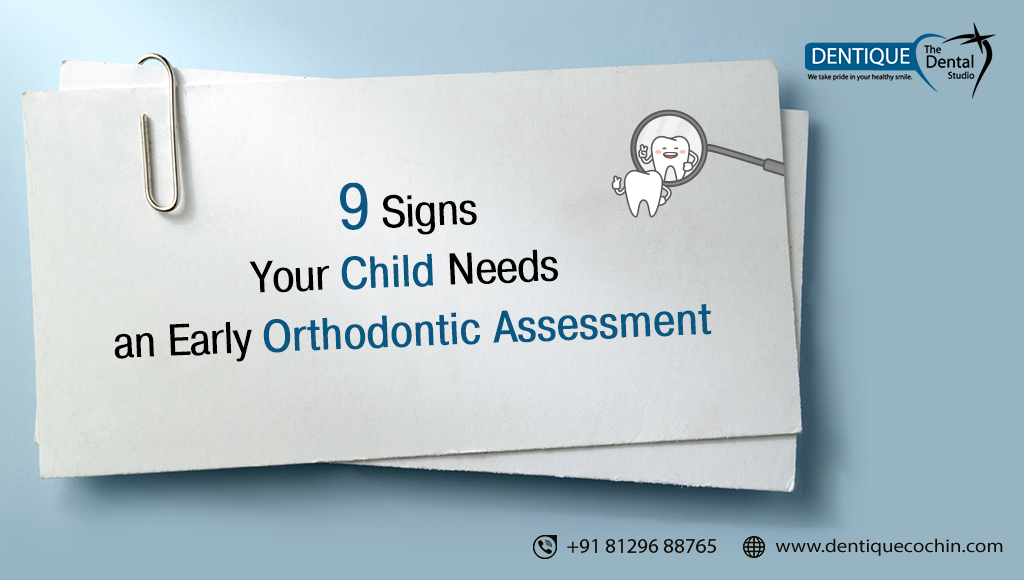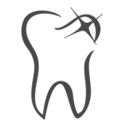
VISITING HOURS:
Week Days - 9 am to 8 pmSundays - Only Emergency Cases
9 Signs Your Child Needs an Early Orthodontic Assessment
Most parents assume thatorthodontic treatments have a more cosmetic value than a health issue. Truth be told orthodontic treatments rectify the more serious bite related problems of a child. If not corrected in time these issues can lead to severe problems when the child becomes an adult – broken or loose teeth, sensitivity etc.
An Early Orthodontic Assessment will help you identify potential problems, sparing your child both physical and mental trauma in the future.
Here are 9 clear signs to look out for if you’re the parent or caregiver of a child.
-
Early loss of baby teeth (before age five)
People believe that baby teeth are anyway going to fall off so what is the big deal. Baby teeth help in proper chewing (essential for adequate nutrition), speech development and more importantly as space holders for the yet to erupt adult teeth. If the child loses one or more baby teeth early, it leaves a space which is not ready to be filled. This will affect eruption patterns and positions, leading to teeth that are crowded and out of alignment.
-
Child’s teeth do not meet properly when the mouth is closed
This indicates a bad bite (malocclusion) and is best observed when the child eats. If left untreated this can lead to an increased risk of tooth decay and gum disease.
-
Mouth breathing and/or snoring when sleeping
Snoring is sometimes a sign of a respiratory infection or allergy. Other times this may be due to sleep apnea, can cause disturbed sleep patterns, which in turn can lead to a listless, inattentive and moody child.
-
Crowding or Protrusion of the front teeth
This indicates a general lack of space in the jaw and must be treated to prevent future complicated orthodontic treatment.
-
Biting or chewing difficulties
Malocclusion is the primary cause of this problem. This will affect the child’s nutrition and speech.
-
A speech impediment
This could be because the child has a lisp.
-
Jaw makes a sound (like it is shifting) when your child opens or closes the mouth
This could be indicative of a TMD (temporomandibular disorder). This is a serious problem that should not be overlooked. As the child grows older the problem and its effects only get worse.
-
Thumbsucking and Pacifiers
Thumbsucking as a child is ok, infact some studies say that it helps in teeth eruption and development of the babies jaw. But if your child is older than five years and still sucks a thumb or finger, it is a serious cause of concern. Thumbsucking interferes with the growth and alignment of the oral cavity.
If you observe any of the above symptoms in your child, please visit an orthodontist before it is too late. An orthodontist would be the best person to advice on the most appropriate treatment plan and options along with the best time to start treatment.
OUR
TREATMENTS
TREATMENTS








